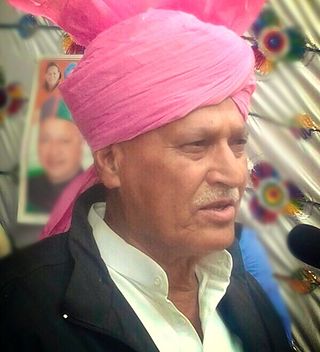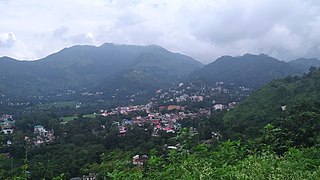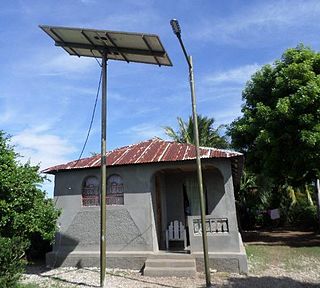Related Research Articles

Himachal Pradesh University (HPU) is a public state university at Summer Hill, Shimla, Himachal Pradesh. It was established on 22 July 1970 by The Himachal Pradesh University Act, 1970 by the Himachal Pradesh Legislative Assembly, before the emergence of Himachal Pradesh as a full state of India.

Shimla is the capital and the largest city of the northern Indian state of Himachal Pradesh. In 1864, Shimla was declared the summer capital of British India. After independence, the city became the capital of East Punjab and was later made the capital city of Himachal Pradesh. It is the principal commercial, cultural and educational centre of the state.

All India Institute of Medical Sciences, New Delhi, is a public medical research university and hospital in New Delhi, India. The institute is governed by the AIIMS Act, 1956 and operates autonomously under the Ministry of Health and Family Welfare.

Chaudhary Chander Kumar serving as Member of Legislative Assembly (MLA) from Jawali. Previously he was elected as MLA from Guler constituency for 5 terms between 1983 and 2004. He also served as Minister in serving key portfolios like Higher Education, Health, Environment and so on. He represented the Kangra constituency of Himachal Pradesh as a Member of Parliament from 2004 to 2009.

Sundar Nagar is a town and a municipal council in Mandi district in the Indian state of Himachal Pradesh. It was formerly a princely state, known as Suket.

Dr. Yashwant Singh Parmar University of Horticulture and Forestry has gained a unique distinction not only in the nation but also in whole of Asia for imparting teaching, research and extension education in horticulture, forestry and allied disciplines. All india institute of medical sciences is established in bilaspur district in hp Indra Gandhi medical College shimla is one is most premium institute in medical sciences in North India

Postgraduate Institute of Medical Education and Research (PGIMER) is a public medical university in Chandigarh, India. It is an 'Institute of National Importance'. It has educational, medical research, and training facilities for its students including all specialties, super specialties and sub specialties. It is the leading tertiary care hospital of the northern India region and caters to patients from all over Punjab, Jammu and Kashmir, Himachal Pradesh, Uttarakhand, Haryana, Bihar and Uttar Pradesh. Apart from the clinical services, PGI also provides training in almost all disciplines of medicine including post graduate and post doctoral degrees, diplomas, Doctor of Philosophy and fellowships. There are more than 50 such training courses in the institute. The 100-seat MBBS college is expected to start by 2025 at PGI's satellite centre in Sarangpur.

Rabies is a viral disease that causes encephalitis in humans and other mammals. It was historically referred to as hydrophobia because its victims would panic when offered liquids to drink. Early symptoms can include fever and abnormal sensations at the site of exposure. These symptoms are followed by one or more of the following symptoms: nausea, vomiting, violent movements, uncontrolled excitement, fear of water, an inability to move parts of the body, confusion, and loss of consciousness. Once symptoms appear, the result is virtually always death. The time period between contracting the disease and the start of symptoms is usually one to three months but can vary from less than one week to more than one year. The time depends on the distance the virus must travel along peripheral nerves to reach the central nervous system.

In animals, rabies is a viral zoonotic neuro-invasive disease which causes inflammation in the brain and is usually fatal. Rabies, caused by the rabies virus, primarily infects mammals. In the laboratory it has been found that birds can be infected, as well as cell cultures from birds, reptiles and insects. The brains of animals with rabies deteriorate. As a result, they tend to behave bizarrely and often aggressively, increasing the chances that they will bite another animal or a person and transmit the disease.

Sanjay Awasthy is an Indian politician and Member of Legislative Assembly (MLA) representing Arki in the Himachal Pradesh Legislative Assembly in India.

The National Centre for Disease Control is an institute under the Indian Directorate General of Health Services, Ministry of Health and Family Welfare. It was established in July 1963 for research in epidemiology and control of communicable diseases and to reorganize the activities of the Malaria Institute of India. It has nine branches at Alwar, Bengaluru, Trivandrum, Calicut, Coonoor, Jagdalpur, Patna, Rajahmundry and Varanasi to advise the respective state governments on public health. The headquarters are in Sham Nath Marg, in New Delhi.
Elections to the Himachal Pradesh Legislative Assembly were held in September 1993 to elect members of the 68 constituencies in Himachal Pradesh, India. The Indian National Congress won the popular vote and a majority of seats and its leader, Virbhadra Singh was appointed as the Chief Minister of Himachal Pradesh for his second term. The number of constituencies was set as 68 by the recommendation of the Delimitation Commission of India.

Jagat Prakash Nadda is an Indian lawyer and politician who is serving as the 34th Minister of Health, 25th Minister of Chemicals and Fertilizers since 2024 and 11th President of the Bharatiya Janata Party (BJP) since 2020 and the member of the Rajya Sabha representing Gujarat since 2024. A key decision maker of the BJP, he is a close aide to Narendra Modi. He was the BJP's working president from 2019 to 2020. Nadda was also the Minister of Health and Family Welfare in the first Modi ministry from 2014 to 2019 and Parliamentary Board Secretary of Bharatiya Janata Party. Nadda is the Minister of Health and Family Welfare and Minister of Chemicals and Fertilizers in the third Modi ministry.
D. S. Rana is an Indian nephrologist and the Chairman of the Department of Nephrology at Sir Ganga Ram Hospital, New Delhi, known for his proficiency in renal transplant procedures. Born in Dasmal, Hamirpur in the Indian state of Himachal Pradesh, he graduated in medicine from the Indira Gandhi Medical College, Shimla and did his advanced training in clinical nephrology at the Postgraduate Institute of Medical Education and Research, Chandigarh. He is an international scholar of the Cleveland Clinic, Ohio and is a member of the Board of Management of the Sir Ganga Ram Hospital. Parvati Education and Health Society, an organization founded by Rana operates a small 5-bedded hospital in his native village of Dasmal for the rural poor. The Government of India awarded him the fourth highest civilian honour of the Padma Shri in 2009, for his contributions to Medicine. He is the first Himachal Pradesh resident awarded Padma Shri.

Rabies is a viral disease that exists in Haiti and throughout the world. It often causes fatal inflammation of the brain in humans and other mammals, such as dogs and mongooses in Haiti. The term "rabies" is derived from a Latin word that means "to rage"; rabid animals sometimes appear to be angry. Early symptoms can include fever and tingling at the site of exposure, followed by one or more of the following symptoms: violent movements, uncontrolled excitement, fear of water, an inability to move parts of the body, confusion, and loss of consciousness. Once symptoms appear, death is nearly always the outcome. The time period between contracting the disease and showing symptoms is usually one to three months; however, this time period can vary from less than a week to more than a year. The time between contraction and the onset of symptoms is dependent on the distance the virus must travel to reach the central nervous system.

Atal Medical and Research University, commonly known as AMRU and earlier known as Himachal Pradesh University of Health Sciences is a university in Ner Chowk, Mandi, Himachal Pradesh, India. It is first university in the state of Himachal Pradesh to specialise in medicine and health sciences.
Reena Kashyap is an Indian politician. She was elected to the Himachal Pradesh Legislative Assembly from Pachhad in the 2019 by election as a member of the Bharatiya Janata Party. By-elections happen due to Suresh Kumar Kashyap elected to Parliament.
Shriniwas Joshi is a columnist, theatre artist, and retired civil servant from Himachal Pradesh, India. As a columnist, Joshi is especially known for his column 'Vignettes' in the Indian English daily The Tribune, through which he has documented people, history, places, and idiosyncratic things all across Himachal Pradesh. As a theatre figure, he has been associated for decades with Shimla's historic Gaiety Theatre, for which he has written, acted in, and directed a number of plays. As a retired civil servant, Joshi has been active in various civic causes in Shimla, including heritage conservation, environmental protection, and the promotion of arts.
References
- ↑ "Dr Omesh Kumar Bharti gets Padam Shri for pioneering research on rabid dog bite". Thenewshimachal.com. 28 January 2019. Retrieved 9 February 2019.
- ↑ "This Himachal Pradesh doctor made rabies treatment cheap". The New Indian Express . Archived from the original on 4 February 2019. Retrieved 9 February 2019.
- 1 2 3 4 "Himachali Doctor finds a perfect cure for Rabies. Gets a Green Signal from W.H.O." BookOfAchievers.com. Retrieved 9 February 2019.
- ↑ "About SHE". She-india.org. Archived from the original on 14 May 2021. Retrieved 25 February 2019.
- ↑ "Health Department – State Institute of Health And family Welfare". Sihfwshimla.com. Retrieved 25 February 2019.
- ↑ "CPWD participates in Republic Day, displaying flower tableaux during Parade". Devdiscourse.com. Retrieved 9 February 2019.